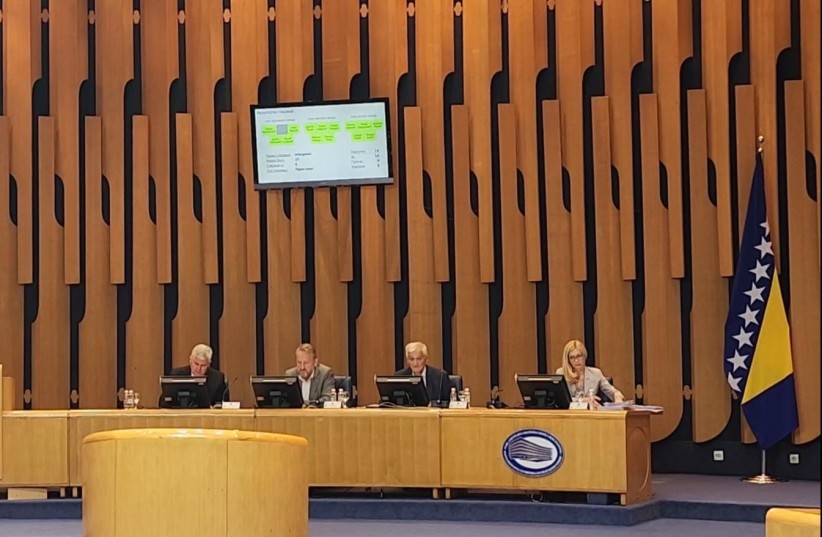The push for nations to adopt the International Holocaust Remembrance Alliance of antisemitism should be suspended, United Nations special rapporteur on racism E. Tendayi Achiume told the General Assembly's Third Committee on Monday.
"I highlight the controversial status, divisive effects and negative human rights impacts of the IHRA working definition on antisemitism," Achiume said in speaking of a report she had submitted to the committee.
The report, she said, focused on the rising dangers of antisemitism, neo-nazism and racism, but simultaneously was critical about the instrumentalization of tools designed to address these issues.
"Precisely because .. antisemitism remains an urgent issue of human rights concern, I urge the UN system and UN member states to launch an open and inclusive process," she said.
Her statement against the standardized definition adopted by at least 38 countries was rejected by a number of nations including the United States, Canada and Israel as well as by the European Union.

A United States envoy charged that Achiume's report "politicized the IHRA definition" adding that the US unequivocally condemns antisemitism.
A Canadian envoy said the definition is a carefully crafted one to enable a common fight against antisemitism and it is not meant to inhibit the ability to criticize the state of Israel.
"Too often the contemporary examples included in the [IHRA] definition is employed as justification for hatred.. online and off and in university campuses and across public discourse," he said.
"The illustrative contemporary examples that you describe as divisive are precisely what has led to the upsurge in violence you highlighted in your report," he said.
The EU, along with Albania, Bulgaria Hungary, Romania, Austria, Italy and the United Kingdom all spoke to how helpful the definition was in identifying and combatting antisemitism.
Israel's Ambassador to the UN Gilad Erdan said IHRA definition is the most globally adopted understanding of antisemitism and has been accepted by other UN officials.
"Rejecting the IHRA definition.. is often a posture used by those defending attitudes targeting Jewish communities or making antisemitic tropes," Erdan said.
"The fabrications spread against Israel and especially the double standard applied against us, which isn't applied to any other state translates into a surge of violence against Jews around the world," he said.
"Defining antisemitism is the first necessary step to combatting it," Erdan added.
IHRA definition of antisemitism
The IHRA definition of antisemitism includes some of the following qualifications:
- "Making mendacious, dehumanizing, demonizing, or stereotypical allegations about Jews as such or the power of Jews as collective — such as, especially but not exclusively, the myth about a world Jewish conspiracy or of Jews controlling the media, economy, government or other societal institutions.
- "Accusing Jews as a people of being responsible for real or imagined wrongdoing committed by a single Jewish person or group, or even for acts committed by non-Jews.
- "Denying the fact, scope, mechanisms (e.g. gas chambers) or intentionality of the genocide of the Jewish people at the hands of National Socialist Germany and its supporters and accomplices during World War II (the Holocaust)..
- "Accusing the Jews as a people, or Israel as a state, of inventing or exaggerating the Holocaust.
- "Accusing Jewish citizens of being more loyal to Israel, or to the alleged priorities of Jews worldwide, than to the interests of their own nations."
